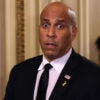While Americans attempt to grapple with the ongoing chaos of the 2024 election, House Republicans have been quietly doing the work of putting together and passing spending bills for the next fiscal year.
What the endgame for those bills will be remains an open and important question—one that could last into next year.
With the gross national debt rapidly approaching $35 trillion and the Biden-Harris administration misusing tax dollars on a massive scale, it’s vitally important for Congress to show fiscal restraint and rein in the out-of-control executive branch.
The Daily Signal depends on the support of readers like you. Donate now
Although the bills working their way to the House floor haven’t been perfect, they contain many significant policy wins for conservatives, including:
- Defunding identity-obsessed Equity Action Plans implemented across the federal government by the current administration.
- Blocking the administration’s abortion promotion at the Department of Defense.
- Placing commonsense rules on earmark spending requests to stop most wasteful and inappropriate items.
- Stopping the administration’s “climate disclosure rule” that would use financial regulation as a backdoor to a massive environmental power grab.
- Defunding contributions to the corrupt United Nations, including the pro-abortion Population Fund and the pro-Hamas U.N. Relief and Works Agency.
- Blocking grants that provide direct support to migrant caravans in Central and South America working their way to the southern border.
- Ending costly and illegal student loan write-off schemes.
- Protecting workers’ rights by blocking the administration’s attempt to blow up independent contracting.
- Defunding the administration’s use of “special envoys” to push leftist ideology overseas.
- Derailing support for California’s bullet train boondoggle.
On the spending side, it’s no secret that the annual process is usually a vehicle for fraudulent gimmicks and deals that are good for Washington, but bad for taxpayers.
The House Appropriations Committee has stepped up with a number of judicious reductions to federal bloat, such as:
- A 31% cut to the Economic Development Administration, which involves government picking winners and losers.
- A $1.5 billion cut to the Office of Energy Efficiency and Renewable Energy, which promotes “green” energy and imposes regulations on consumer appliances.
- Reducing Environmental Protection Agency state and local grants by $749 million. Under the Biden-Harris administration, these grants promote “environmental justice” and climate schemes.
- Taking $11 billion from the federal Department of Education, which is a bastion of leftist power and control.
- Shrinking the Centers for Disease Control and Prevention by $1.7 billion, striking a blow against the increasingly politicized Big Science complex.
- Defunding the Title X family planning program and stopping any taxpayer support for abortion providers, such as Planned Parenthood.
- A 30% cut to foreign “development assistance.”
- Reducing excessive subsidies to mass transit agencies by $1.3 billion.
- Cutting the Department of Housing and Urban Development (which is primarily a welfare agency) by $5.2 billion.
However, putting the policy gains and spending reductions in House legislation into law could prove nearly impossible under current circumstances.
Despite the economic damage caused by high levels of inflationary deficit spending and surging interest payments on the national debt, the Senate is leaning into the worst habits of the swamp. Senators are set to include $34 billion of phony “emergency” spending and have almost no guardrails on pork barrel spending requests.
With Democrats controlling the Senate and the White House, there will be little incentive to agree to the reforms and savings passed by House Republicans.
Most years, initial bickering between the parties leads to missed deadlines, but results in a multi-thousand-page “omnibus” package loaded with goodies for political insiders.
It’s clear that President Joe Biden, Vice President Kamala Harris, and Senate Majority Leader Chuck Schumer, D-N.Y., want to continue the status quo of a federal government that spends too much and uses the nation’s institutions to promote leftist ideology.
An omnibus package would maintain that through September 2025, which should be considered unacceptable.
Instead, the House should consider aiming for an extension of current spending (known as a continuing resolution) that would go beyond the postelection “lame duck” session and last into early 2025.
That would ensure retiring and defeated lawmakers and an unaccountable president are not controlling the outcome of federal funding priorities for time they are not elected to represent their constituencies.
The November elections could yield a conservative governing majority, which would make it possible to enact and even build on the current House bills.
That would be an important first step toward restoring sanity in the nation’s capital.































